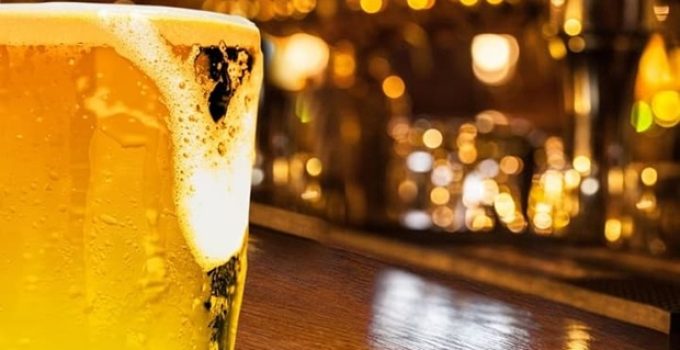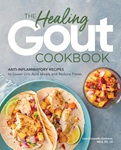Does Beer Cause Gout?
According to one study, the answer is an emphatic yes.
- Drinking 2-4 beers per week increases gout risk by 25%.
- Drinking 2 beers per day increases gout risk by 200%.
- The more beer you drink, the more likely you will get gout.
It’s important to note that gout, a form of arthritis that typically occurs in overweight and middle-aged men, is a condition that can be managed and even prevented. An estimated 5 million Americans are known to have suffered from gout. It is a type of rheumatic disease that often causes chronic and intermittent pain attacks in the wrist, hand, ankle, knee, and foot joints. It is caused by excess levels of uric acid that have been built up and formed into needle-like crystals in the joints, causing inflammation in the joints. [2]
Dig Deeper
- How Gout Develops
- Gout and Alcohol Consumption
- How Alcohol Increases the Risk of Gout Attacks
- References
How Gout Develops
Once the body processes purines, it produces a waste product called uric acid. Purines are natural substances found in all of the body’s cells and in many foods. Typically, urination removes uric acid from the body. However, high uric acid levels can form crystals that deposit around the tendons and joints. These crystal deposits cause swelling, inflammation, stiffness, and chronic pain. [3]
Gout and Alcohol Consumption
While genetics have been linked to gout, there is no question that lifestyle plays a vital contributing factor. For instance, beer consumption has been associated with gout attacks for many years, but recent research studies have finally confirmed the association. This underscores the importance of making informed choices about our diet and habits.
One compelling study by Hyon K. Choi, MD, department of medicine, Massachusetts General Hospital, Harvard Medical School, Boston, followed more than 47,000 men over twelve years. The study concluded that drinking as few as two to four beers a week increased the chance of gout by 25%. The men who drank two beers daily had an increased risk of gout by 200%. The more beer they drank, the more likely they were to suffer from gout, indicating that beer is directly related to gout. [4]
How Alcohol Increases the Risk of Gout Attacks
Healthcare professionals often advise individuals with gout to avoid foods and beverages with high purine levels, a substance that causes uric acid buildup. High-purine foods may include fatty red meats, organ meats like liver, and specific types of seafood. High-purine beverages include all alcoholic drinks, and beer is at the top of the list. [5]
There are two ways that alcohol increases the risk of gout attacks:
- Alcohol inhibits uric acid removal in the body. Once the body metabolizes alcohol, it becomes lactic acid, which competes with the uric acid in the kidney during the elimination or urination process. This competition leads to high levels of uric acid retention in the body, as the kidneys prioritize the removal of lactic acid over uric acid. [6]
- Alcohol also contributes to increased levels of uric acid in the body. It increases the ATP levels in the body, converting into AMP – a substance that allows the easy buildup of uric acid in the body. [7]
While indulgence in high-level purine foods and beverages are the main culprits of gout attacks, it is drinking alcoholic beverages (specifically beer) that seem to make a greater contribution. [8]
References
- [1] Singh JA, Sarkin A, Shieh M, Khanna D, Terkeltaub R, Lee SJ, Kavanaugh A, Hirsch JD. Health care utilization in patients with gout. Semin Arthritis Rheum. 2011 Jun;40(6):501-11.
- [2] American College of Rheumatology – “Gout.”
- [3] Mayo Clinic – “Gout Symptoms and Causes.”
- [4] Choi HK, Atkinson K, Karlson EW, Willett W, Curhan G. Alcohol intake and risk of incident gout in men: a prospective study. Lancet. 2004;363:1277–81
- [5] Mayo Clinic – “Gout diet: What’s allowed, what’s not.”
- [6] Dandekar, Sucheta P, and Mahdi, Abbas Ali. Medical Biochemistry: Preparatory Manual for Undergraduates_2e-E-book. India, Elsevier Health Sciences, 2021.
- [7] Comprehensive Handbook of Alcohol Related Pathology. Netherlands, Elsevier Science, 2004.
- [8] T. Gibson, A. V. Rodgers, H. A. Simmonds, P. Toseland, Beer Drinking and Its Effect On Uric Acid, Rheumatology, Volume 23, Issue 3, August 1984, Pages 203–209.
DISCLAIMER: THIS WEBSITE DOES NOT PROVIDE MEDICAL ADVICE
The information, including but not limited to text, graphics, images, and other material on this website, is for informational purposes only. No material on this site is intended to be a substitute for professional medical advice, diagnosis, or treatment. Always seek the advice of your physician or other qualified healthcare providers with any questions you may have regarding a medical condition or treatment before undertaking a new healthcare regimen, and never disregard professional medical advice or delay in seeking it because of something you have read on this or any other website.
Related Products
The Healing Gout Cookbook: Anti-Inflammatory Recipes to Lower Uric Acid Levels and Reduce Flares
The 28-Day Gout Diet Plan: The Optimal Nutrition Guide to Manage Gout


